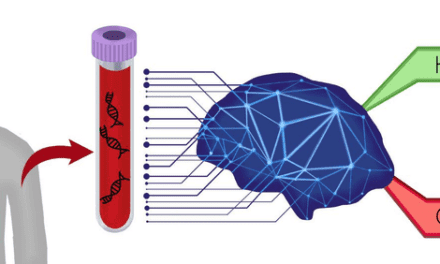August 8, 2007
The FDA has approved the first molecular-based laboratory test for detecting whether breast cancer has spread (metastasized) to nearby lymph nodes. The GeneSearch BLN Assay detects molecules that are abundant in breast tissue but scarce in a normal lymph node.
The presence or absence of breast cancer cells in underarm lymph nodes is a powerful predictor of whether the cancer has spread and is used to help decide appropriate therapy for a woman with metastatic breast cancer.
Lymph nodes are part of the system that helps protect the body against infection. The first lymph node that filters fluid from the breast is called the "sentinel node," because that is where breast cancer cells are likely to spread first.
In a clinical trial, the new assay showed strong agreement with results from extensive microscopic examination of the lymph nodes of 416 patients. The test accurately predicted that breast cancer had spread nearly 88% of the time in women with metastasis. Patients without metastasis were identified accurately 94 percent of the time.
Most of the women were also studied to compare the BLN Assay with immediate microscopic examination during surgery. The test gave fewer false negative results, but slightly more false positive results.



